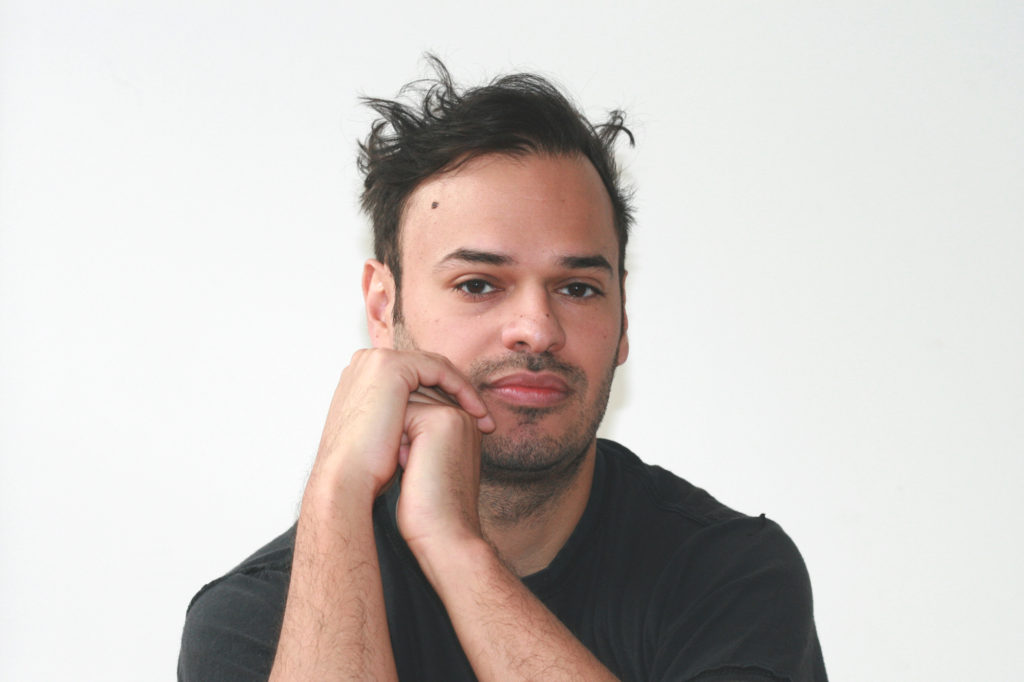
Supe Troop’s Laura Katz spoke with composer Bryan Senti about his work on the recent Netflix documentary Giving Voice, music, and, of course, soup!
Supe Troop (ST): What do you like about film scoring that is different from your other work?
Bryan Senti (BS): Film scoring is a collaborative process from beginning to end for a composer, and that can be a nice counterpoint to an otherwise solitary profession!
ST: What is an example of where you think another composer nailed a project or a particular scene?
BS: The ocean sequence in Moonlight by Nicholas Britell. Rarely does a single cue make you think, “ok, film scoring has changed from now on.”
ST: How do you start on a score for a new project?
BS: Depends on whether or not it’s narrative or documentary. If it’s narrative, I’m at the piano or violin coming up with themes and gestures inspired by the script. If it’s a documentary, I’m in close consultation with the director and editor discussing the tone of the film, references they may have, and their temp. And, for a documentary, it tends to be important for me to start from the beginning, so that the doc has a well thought-out musical build.
ST: When scenes give you trouble, what are some of the things you do to make them work?
BS: Take a day, play music editor and fly in other cues, discuss with a colleague, and ask the director to come in.
ST: Is there one cue that you particularly enjoyed creating for Giving Voice?
BS: It’s not that important a cue, but, when the kids go to NY for the first time, there’s a Tremé inspired track. I got to work with my friend, David Ralicke, a brass and wind god who’s performed with everyone from Blues Traveler and Ziggy Marley to Beck and Charlotte Gainsbourg. We had a lot of fun!
ST: Your score honored the most touching moments of the film, the students’ stories, and August Wilson’s legacy without being overly sentimental. How did you go about achieving that balance?
BS: I think maybe by toggling the instrumentation. The scenes with the kids are the more emotionally intense scenes, and, for that reason, their stories are often underscored by smaller, more intimate ensembles. August Wilson’s sections are larger, often with full orchestra, but they’re often accompanied by synths that give them a more timeless, long-viewed historical feel. I think both approaches allowed their respective scenes to shine without being overpowering.
ST: The doc is part character pieces, part biography, part chronological narrative – how did that mixture influence how you approached building a coherent score?
BS: The mixture forced the use of clear and defined themes. Normally, I can be a little loosey goosey with themes, and, when a theme returns, it’s a big moment. But for this film I was a bit more academic with their use so that the flow of the film, particularly the first part when you’re hearing each student’s story, felt fun and brisk.
ST: What is some other music you are listening to these days?
BS: Everything’s from outside the US: Toumani Diabate, Mulatu Astatke, Milton Nascimiento, Mercedes Sosa, etc.
ST: What projects are you working on now or soon that you are excited about?
BS: A neo classical record that draws inspiration from Latin American music, particularly Latin American indigenous music. My parents were from Cuba and Colombia and this is my opportunity to blend the music of my family with my classical music upbringing.
ST: What is your favorite kind of soup?
BS: Tortilla Soup.
Check out the tag below for more info on Giving Voice and catch the film on Netflix now!